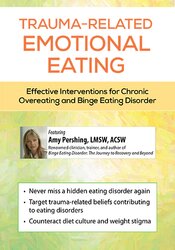Inscríbase hoy mismo en un curso en línea para aprender de forma flexible y a su propio ritmo, sin necesidad de horarios fijos.


-
 Curso en líneaTanto si es nuevo en la terapia Internal Family Systems IFS) como si lleva años practicando este modelo, regístrese y descubra cómo perfeccionar y personalizar el modelo para adaptarlo a las necesidades únicas de sus clientes.Valor: 1.140,66 * euros€275,99Tanto si es nuevo en la terapia Internal Family Systems IFS) como si lleva años practicando este modelo, regístrese y descubra cómo perfeccionar y personalizar el modelo para adaptarlo a las necesidades únicas de sus clientes.21 oct, 2020Tanto si es nuevo en la terapia Internal Family Systems IFS) como si lleva años practicando este modelo, regístrese y descubra cómo perfeccionar y personalizar el modelo para adaptarlo a las necesidades únicas de sus clientes.Valor: 1.140,66 * euros€275,99
Curso en líneaTanto si es nuevo en la terapia Internal Family Systems IFS) como si lleva años practicando este modelo, regístrese y descubra cómo perfeccionar y personalizar el modelo para adaptarlo a las necesidades únicas de sus clientes.Valor: 1.140,66 * euros€275,99Tanto si es nuevo en la terapia Internal Family Systems IFS) como si lleva años practicando este modelo, regístrese y descubra cómo perfeccionar y personalizar el modelo para adaptarlo a las necesidades únicas de sus clientes.21 oct, 2020Tanto si es nuevo en la terapia Internal Family Systems IFS) como si lleva años practicando este modelo, regístrese y descubra cómo perfeccionar y personalizar el modelo para adaptarlo a las necesidades únicas de sus clientes.Valor: 1.140,66 * euros€275,99 -
 Curso en líneaGabor Maté va más allá de la instrucción y demuestra exactamente cómo utiliza la Indagación Compasiva para facilitar la curación. Obsérvele poner en práctica su método único con más de 10 miembros del público.Valor: 689,89 * euros€275,99Gabor Maté va más allá de la instrucción y demuestra exactamente cómo utiliza la Indagación Compasiva para facilitar la curación. Obsérvele poner en práctica su método único con más de 10 miembros del público.15 Jul, 2022Gabor Maté va más allá de la instrucción y demuestra exactamente cómo utiliza la Indagación Compasiva para facilitar la curación. Obsérvele poner en práctica su método único con más de 10 miembros del público.Valor: 689,89 * euros€275,99
Curso en líneaGabor Maté va más allá de la instrucción y demuestra exactamente cómo utiliza la Indagación Compasiva para facilitar la curación. Obsérvele poner en práctica su método único con más de 10 miembros del público.Valor: 689,89 * euros€275,99Gabor Maté va más allá de la instrucción y demuestra exactamente cómo utiliza la Indagación Compasiva para facilitar la curación. Obsérvele poner en práctica su método único con más de 10 miembros del público.15 Jul, 2022Gabor Maté va más allá de la instrucción y demuestra exactamente cómo utiliza la Indagación Compasiva para facilitar la curación. Obsérvele poner en práctica su método único con más de 10 miembros del público.Valor: 689,89 * euros€275,99 -
Afíliese
Temas de actualidad:











